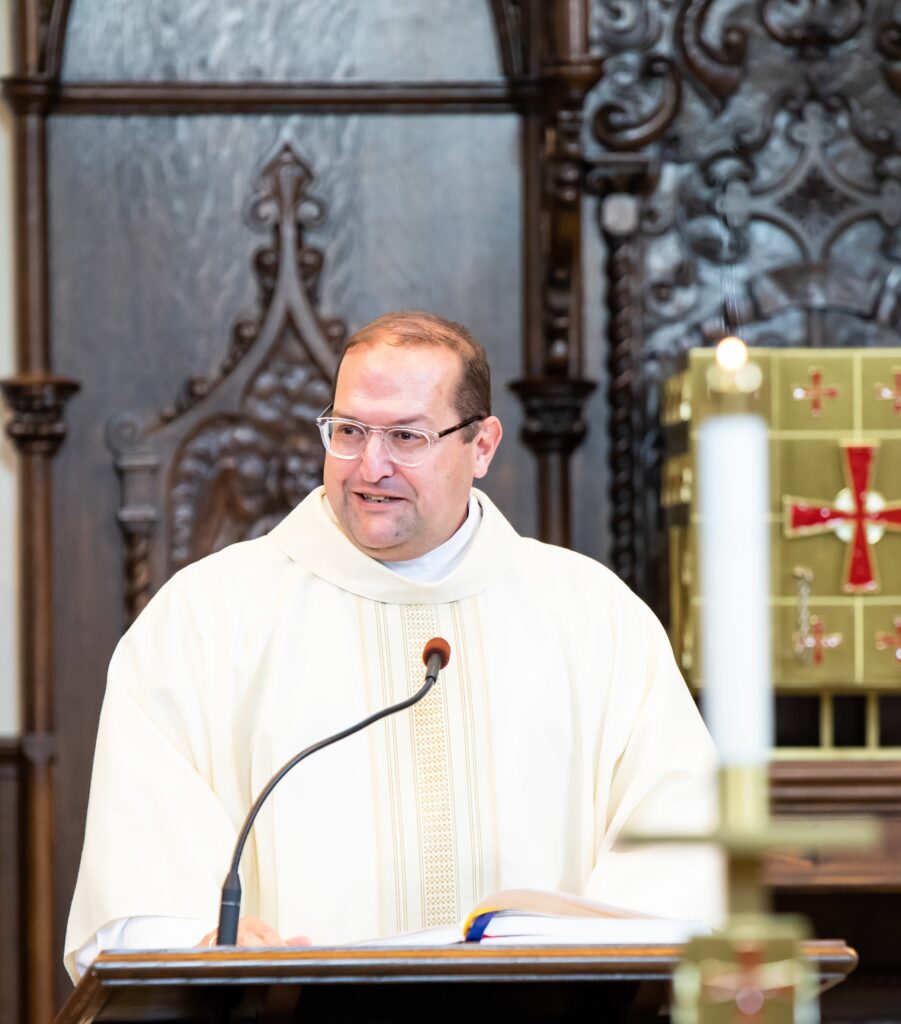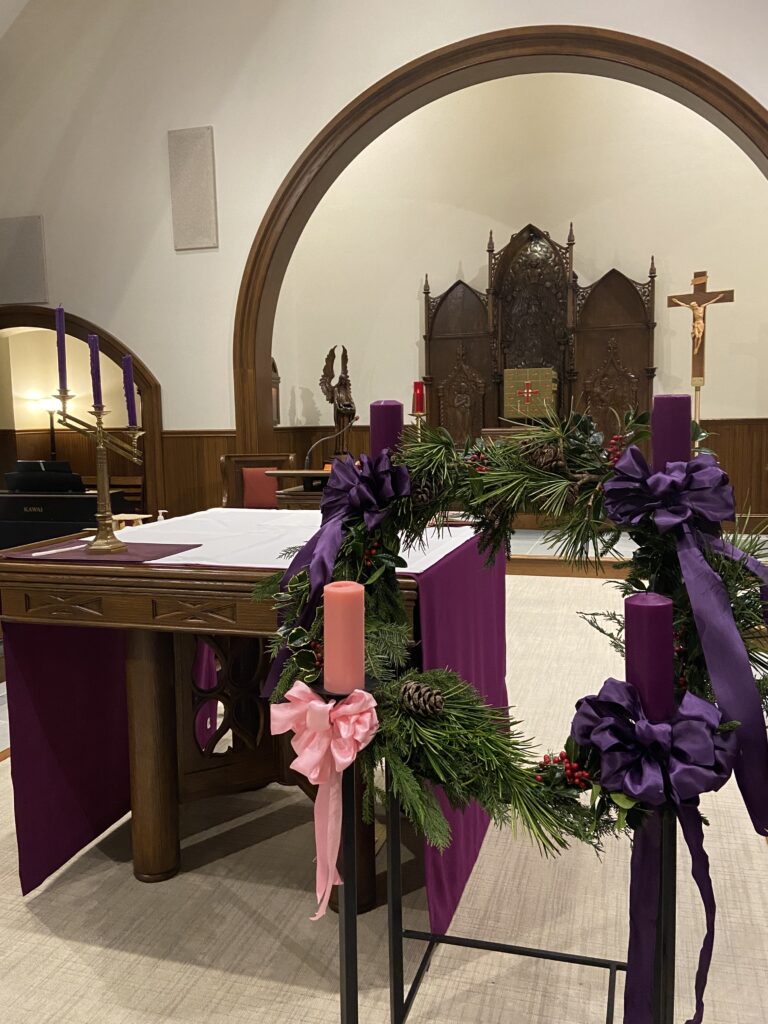Mercy Mondays: Chaplain’s Corner – Practicing a selah moment during the pandemic

The word selah occurs numerous times in the book of the Psalms, and its definition has been a subject of debate for many theologians. While the meaning of selah has been lost over time, it can now be translated a few different ways. Some scholars see the word to mean interlude, as in a musical setting. Others have suggested that the word means silence, pause or even end.
Today, the definition which is most fitting for the times we are living in is pause. During this two week pause due to COVID-19, the message we are seeing is emphatically, “This matter is important. Take a moment to think about it.” As in the Psalms, selah would invoke a break to ponder the words that were just sung. So too this time of selah in our lives is a time to ponder how God is speaking of mercy no matter the circumstances we find ourselves in.

This Chaplain’s Corner is by Father Scott, who presides over Mass at Our Lady of Mercy Chapel on the Salve Regina University campus.
Where can the mercy of God be found during this pause? How can we go about encountering God’s mercy during this moment of selah? In Psalm 63:2-8, we see an example of David taking a moment in his day to reflect upon the words just prayed. Here he says, “On my bed, I remember you,” taking that time before retiring to meditate on God’s mercy:
“I have seen you in the sanctuary
and beheld your power and your glory.
Because your love is better than life,
my lips will glorify you.
I will praise you as long as I live,
and in your name I will lift up my hands.
I will be fully satisfied as with the richest of foods;
with singing lips my mouth will praise you.
“On my bed I remember you;
I think of you through the watches of the night.
Because you are my help,
I sing in the shadow of your wings.
I cling to you;
your right hand upholds me.”
In the New Testament, we can find these selah times when Jesus took a quiet moment with his disciples or even by himself. Looking at the Gospel of Mark 1:35, Jesus goes off to a solitary place to be alone. In Luke 6:12, just before calling the 12 apostles, Jesus took the prior night to go up the mountain to pray to God. After spending the night in prayer, Jesus calls the apostles to follow him and experience God’s mercy in an even great way.
Since the beginning of the Bible, all those who have sought God took this time of selah seriously. So during this COVID-19 pause, we too should take advantage of this break and seek out God’s mercy in our own selah during this uncertain moment in a pandemic.
How can we do this? One of the biggest examples we can emulate currently is approaching God in prayer.
In the book of Colossians 4:2, we read: “Devote yourselves to prayer, be watchful and thankful.” The letter to the Philippians 4:6 says, “Do not be anxious about anything, but in every situation, by prayer and petition, with thanksgiving, present your requests to God.”
This counsel from St. Paul is so appropriate for the world today. We are anxious, but we are called by faith to hand over that anxiety to God in prayer — and in doing so, he will show us his mercy.
If David, a man after God’s own heart in the Psalms, sought selah moments, and Jesus himself sought them as well, how much more should we find solace in this time of pause?
Written by Rev. Scott J. Pontes, University Chaplain
This post is part of an ongoing series called Mercy Mondays that highlights Salve Regina’s dedication to its Mercy Mission. Search the tag Mercy Mission for more updates on the Mercy branches of Salve Regina.



